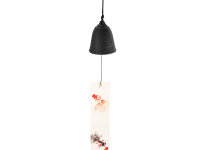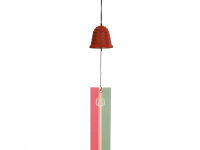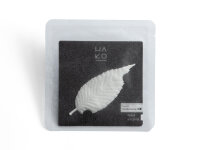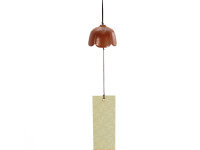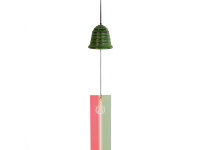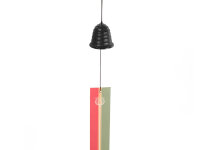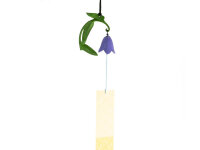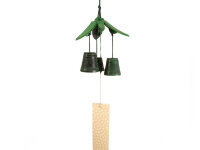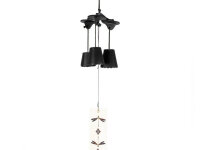"Wind chimes, Furin Tsurigane"
Sounds of summer: the poetry of Japanese wind chimes
In Japan, wind chimes, known as \"furin\", are decorative elements, but also embody a deep cultural meaning and are an essential part of the Japanese summer. Their origins date back to the Nara and Heian periods, where they were originally used in temples to announce good news and drive away evil spirits.
Traditional Japanese culture appreciates the simplicity and subtle beauty reflected in the sounds of a wind chime. Each note of a furin is seen as a reminder of the natural world and its ephemeral beauty. In the heat of summer, when the air stands still and the heat becomes overwhelming, the delicate sound of a wind chime brings a refreshing and calming presence. It is a gentle yet haunting reminder of the cooling winds that are soon to come.
Wind chimes in Japan are often made of glass or metal and carefully crafted to be not only aesthetically pleasing but also harmonious in sound. They often hang from the eaves of traditional Japanese homes, in gardens, at temples and even in urban apartments, where they provide a bridge to nature and an escape from the hustle and bustle of everyday life. Designs range from simple, elegant shapes to complex, ornate depictions of nature motifs and cultural symbols.
In Japan, the sound of a furin is also a poetic expression of the concept of \"mono no aware\", the sensitivity to the transience of things. The sound of a wind chime is fleeting, a brief, beautiful moment that comes and goes, much like the cherry blossoms in spring or the leaves in fall. This awareness of impermanence enhances appreciation for the present moment and fosters a deeper connection with the natural world.
In addition, wind chimes are often associated with wishes and prayers in Japan. Many believe that the gentle ringing of the bells brings good luck and carries wishes to heaven. In some regions, people write their wishes or prayers on strips of paper and hang them on the wind chimes in the hope that their messages will be carried out into the world with every sound.
The traditional Japanese wind chimes are therefore not only a pleasant sound chime, they are also a deeply rooted cultural symbol that taps into harmony with nature, the appreciation of transience and the hope of happiness and prosperity. Their gentle sound reflects the soul of Japanese culture - a solemn yet humble recognition of the natural order and beauty of the world.





